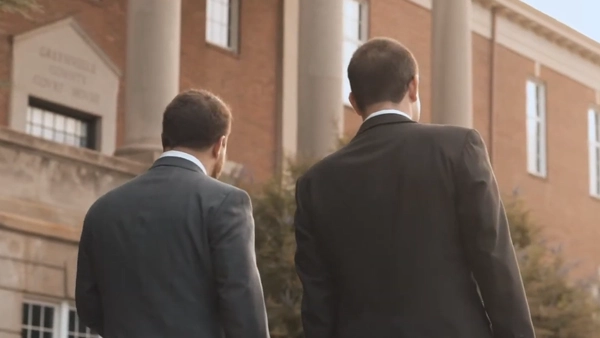Automobile accident victims have the right to seek compensation. However, they have the burden of coming up with and preserving the evidence that is necessary to prove the at-fault party’s liability.
The car accident witness statement is one such piece of evidence. If you are the victim of a car wreck, you should understand how a statement will be used to bolster your claim for monetary damages. Our Greenville, SC accident attorney at David R. Price, Jr., P.A. explains.
Who Can Be a Witness to a Car Accident?
Anyone who saw the accident happen or can otherwise offer valuable information about the wreck can be considered a witness. Witnesses might include anyone who came upon the crash scene in its immediate aftermath, or who was present before the accident happened and can describe the conditions.
Some examples of witnesses include:
- The drivers involved in the wreck
- Other motorists, pedestrians, and individuals who saw the collision
- People in nearby buildings who witnessed the accident
- Expert witnesses, described in more detail below
Can a passenger be a witness in a car accident?
If you’re wondering whether individuals who were in the vehicle with them at the time of the accident can serve as witnesses, the answer is yes — passengers can be witnesses. A passenger is likely to be a friend or relative of the victim and is therefore likely to be cooperative with law enforcement and the victim’s lawyer.
The lawyer defending the at-fault party, or the insurance company, may try to exclude or limit the effectiveness of a car passenger by arguing bias if they are the victim’s friend or family member.
However, this should not deter the witness from speaking up.
The attorney representing the victim will be best positioned to use the passenger’s testimony and maximize its effectiveness in the accident case.
What Are the Different Types of Witnesses?
Car accident witnesses are broadly divided into two categories: lay witnesses and expert witnesses. Lay witnesses are ordinary individuals who can report what they saw, heard, or otherwise perceived related to the accident. Except for expert witnesses, the individuals listed above are generally considered to be lay witnesses. Their testimony is limited to the facts related to the collision.
There are two types of lay witnesses:
First-party lay witnesses
These individuals are directly involved in the accident and include drivers, passengers, and others injured in the crash. If you are the victim, you are a first-party witness to the accident. The defendant driver, or other person who caused and was involved in the crash, is also a first-party witness.
Although a first-party witness to a car accident can be biased because he or she has a stake in the outcome of the case, this person can still offer valuable details about how the wreck occurred.
Third-party lay witnesses
A third-party lay witness is someone who saw or otherwise perceived the crash (e.g. by hearing the car brakes squeal) but was not personally involved in it. Other drivers and pedestrians near the scene are examples, as are individuals who were in buildings close to the accident. Also included are persons who may not have seen the wreck itself but can describe what the scene was like before or after it happened, or heard statements made by one of the parties to the wreck shortly after the collision.
This category also includes individuals who weren’t involved in the collision, but can offer valuable information concerning the cause of the accident. An example is someone at a bar who witnessed the driver drinking alcohol before getting into a wreck. Third-party lay witnesses are usually considered objective, since they aren’t personally invested in the outcome of the accident claim.
Expert witnesses
An expert witness is someone with specialized or technical knowledge beyond the ordinary knowledge of the jury, who can offer opinions related to the causes, effects, and other aspects of the crash besides the underlying facts.
One example of an expert witness is an accident reconstructionist. Although this person didn’t witness the accident, he or she can use the facts gathered from it to explain how and why it happened. A medical expert witness is another example. This expert witness can testify about the cause and extent of the victim’s injuries and likely treatments that will be needed in the future.
An experienced attorney will know how to find the right expert witness or witnesses and develop their testimony. Our firm has a reliable network of experts who provide compelling testimony on behalf of our clients.
How to Collect a Witness’s Contact Information
If an eyewitness is still at the scene, you can approach this individual and start by asking for his or her name and contact information. This information can then be passed along to your attorney, and your lawyer can then follow up with the individual to obtain a written statement or subpoena the person to testify in court or at a deposition.
The witness may be forthcoming and agree to provide a written statement. If so, make sure the statement is signed and dated. Otherwise, let your attorney work to obtain a statement from this person for you.
Police officers who show up to generate a police report should also speak with any witnesses at the scene. If you are aware of someone who witnessed the collision, you can direct the officer to the witnesses with whom he or she should speak.
The identities of the witnesses should then be included in the officer’s written report. Your lawyer can obtain a copy of this report and use it to determine which witnesses can testify in support of your accident claim.
How Can a Car Accident Witness Statement Help Your Case?
Both the lay and expert witness can assist in strengthening your accident claim. The lay witness bolsters the victim’s claim by providing a direct account of what happened. The details offered by this witness may not be captured elsewhere, for instance by a surveillance camera.
Even if there is a video recording of the wreck, a witness statement can add vivid details such as a description of the injuries, sounds of brakes and breaking glass, and even the smell of gas leaking from a wrecked vehicle. The impact that this information has on your jury can be a substantial factor in proving your arguments.
Your car accident lawyer will understand how to use this testimony in court according to the various evidence and procedural rules.
Expert witnesses strengthen various elements of the victim’s case like causation and damages.
For instance, an accident reconstructionist can discuss how the facts of the collision point demonstrate that the wreck was the fault by the other driver.
Some experts might be necessary to explain how other parties, like automobile manufacturers, were liable. As another example, a medical expert witness can testify about the scope of a victim’s injuries and the future treatments the victim will need. This information can help strengthen the victim’s demand for damages.
Learn More About How A Car Accident Witness Can Help
Were you hurt in an automobile accident in Greenville, SC? If so, let us explore your legal options with you and explain what a car accident witness statement can do for your claim. Call an attorney at David R. Price, Jr., P.A. today.







